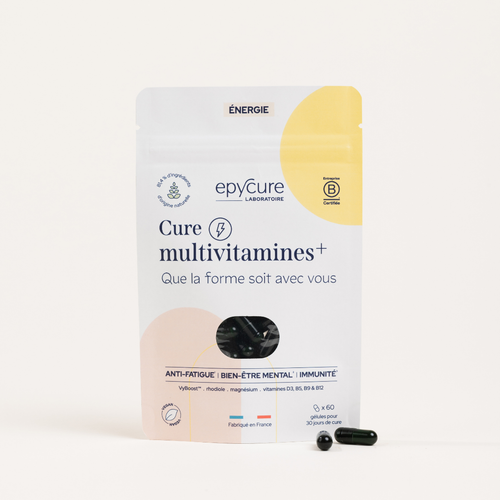Also known as “ascorbic acid,” vitamin C plays a crucial role in certain bodily functions . A key factor in good health, we tell you everything you need to know about vitamin C.
What exactly is vitamin C?
It is one of the water-soluble vitamins and has the particularity of not being able to be stored in the body : it must therefore be provided daily in your diet. In addition, vitamin C is one of the most “fragile” vitamins because it is photosensitive, that is to say it is sensitive to light, heat but also to oxygen (it will therefore be affected by cooking or by prolonged exposure to air).
What are the sources of vitamin C?
About 90% of vitamin C intake is provided by fruits and vegetables . Furthermore, vitamin C content varies from one fruit or vegetable to another but will also depend on seasonality . Indeed, it is very important to respect the seasons for fruits and vegetables in order to guarantee the best possible vitamin intake .
Among the richest sources of vitamin C are citrus fruits, guava, kiwi, blackcurrant and acerola, but also vegetables (peppers, broccoli, cabbage, etc.) and aromatic herbs, particularly parsley, thyme and dill.
What are the roles of this vitamin?
Vitamin C is involved in many processes in the body, here are some benefits of this vitamin:
Powerful antioxidant and anti-inflammatory properties
Vitamin C acts as a powerful antioxidant and anti-inflammatory by blocking free radicals and molecules responsible for oxidation and inflammation in our cells. This action can be particularly beneficial in the fight against cancer . Indeed, cancer cells are deficient in certain enzymes and molecules , making them more sensitive than normal cells. Vitamin C will then influence the sensitivity of these cells to inhibit their growth . According to some studies, it would also be a real support for chemotherapy and radiotherapy, which makes it a molecule of choice for fighting cancer.
Immunity support
Vitamin C helps develop and maintain an immune response against pathogens to prevent damage to the body, especially infections. By preventing these infections, ascorbic acid strengthens the body's innate and adaptive immunity .
Helps in collagen synthesis
Vitamin C is essential for the production of collagen . By boosting collagen formation through its action on the enzymes of its biosynthesis, it plays an essential role in the healing of connective tissue . Their combination is, moreover, often observed to optimize the action and promote the assimilation of collagen .
How much should I bring?
As a water-soluble vitamin, vitamin C must be taken daily to meet the recommended daily intake and depends on the physiological state of the person : age (infants, adolescents), sex, or in case of pregnancy. For an adult, the recommended intake is 90 mg per day while for pregnant and breastfeeding women, 110 mg per day is recommended.
Risks of deficiencies
This intake is necessary to maintain good health . Unfortunately, many circumstances can lead to vitamin C deficiency : illnesses, diabetes, growth, pregnancy, smoking, etc. The first symptoms of vitamin C deficiency are quite common, such as fatigue, irritability , and a feeling of weakness. In cases of more severe deficiency , the appearance of scurvy can be observed. Representative of vitamin C deficiency, the symptoms of scurvy are numerous : anorexia, asthenia, joint pain, digestive and gynecological hemorrhages, alopecia, loss of tone, etc. If not treated in time, these symptoms can worsen, thus attacking the teeth or skin (loss of teeth, bleeding gums, hematomas, bruises, etc.).
Despite common hypovitaminosis, scurvy remains rare . It is still important to take precautionary measures to prevent this from happening. A balanced diet and supplementation with vitamin C can reduce the risk of vitamin C deficiency.









